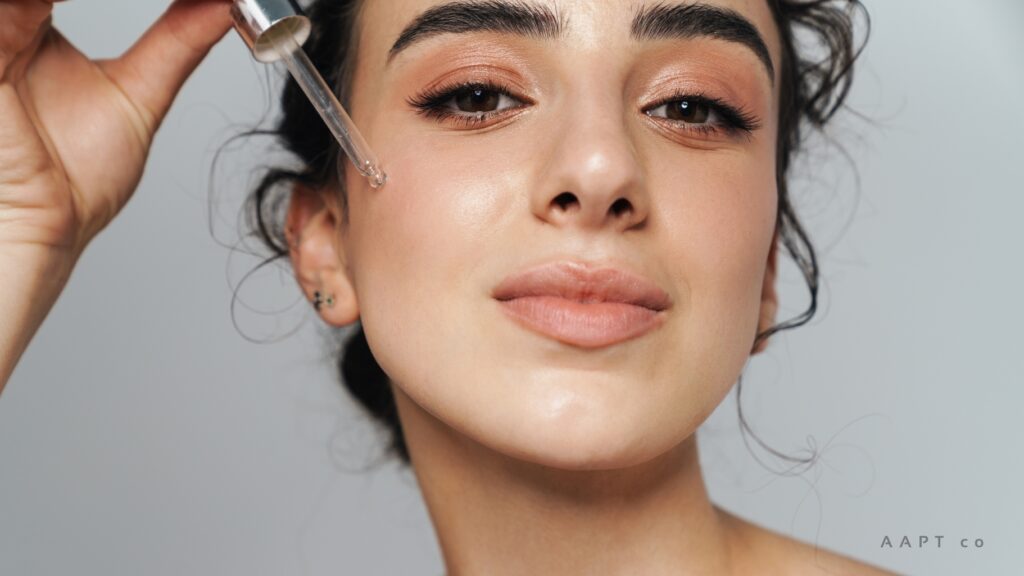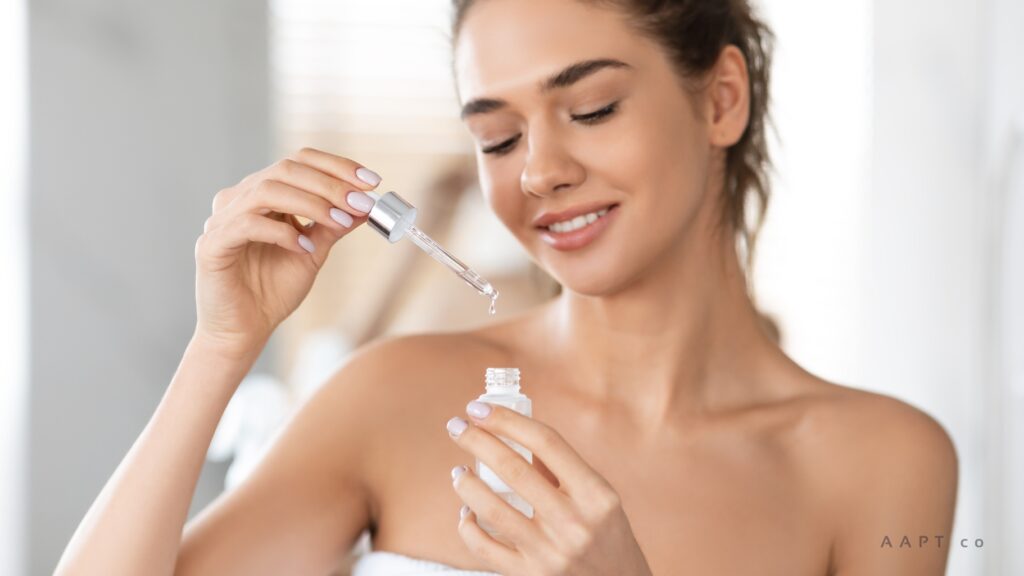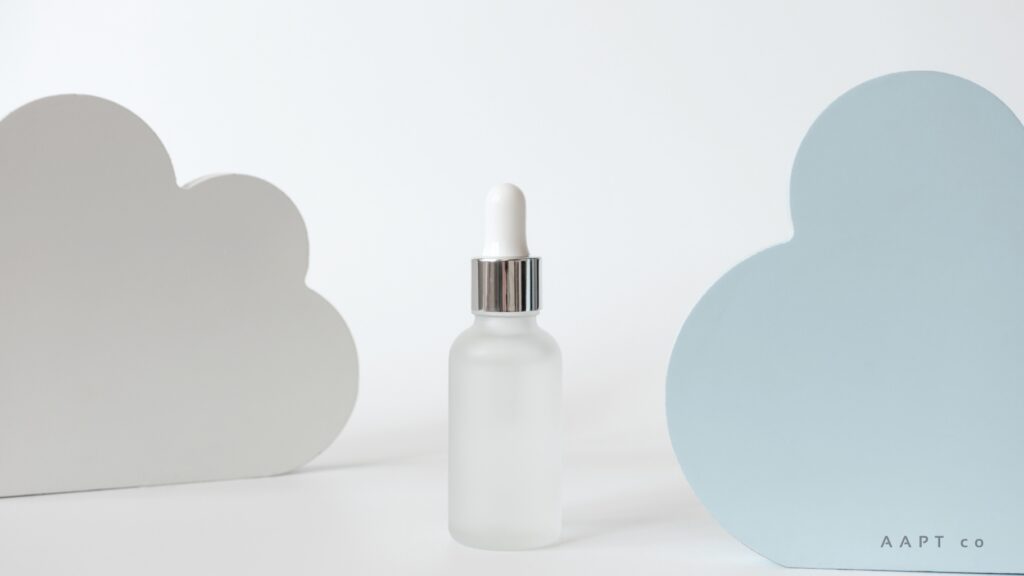Advantages and Disadvantages of Using Facial Serums
This post was last updated on January 21st, 2025
Facial serums are known for their concentrated formulations that are packed with active ingredients.
These potent formulas allow for targeted treatment of specific skin concerns, such as fine lines, hyperpigmentation, acne, or dullness. The high concentration of beneficial ingredients in serums can deliver noticeable results. Facial serums are usually lightweight and have a thinner consistency compared to moisturizers or creams. This makes them fast-absorbing and suitable for all skin types, including oily or combination skin. The lightweight texture also allows for layering with other products in a skincare routine without feeling heavy or greasy.
There are several reasons why facial serums have lately become popular and grabbed the market as well as customers’ attention.
Serums come in various formulations, allowing users to choose the one that best suits their skin type and specific concerns. Whether it’s hydration, brightening, anti-aging, or acne-fighting properties, there is a serum available for almost every skin concern.
This versatility and customizability appeal to individuals who want to address their unique skin needs effectively. However, some brands craft their products with hefty usage of chemicals which can be harmful for your skin.
Thus, there are both advantages and disadvantages of using facial serums. Yet, we can choose the best ones, just by gaining more information about the ingredients and real authentic products.

Before getting to the list of advantages and disadvantages in brief let’s know things that you need to check before buying facial serums.
- Skin Type and Concerns: Assess your skin type and specific concerns to determine the type of serum that would best suit your needs. For example, if you have dry skin, you may benefit from a hydrating serum, while oily or acne-prone skin could benefit from a serum that targets oil control or acne.
- Ingredients: Check the ingredient list to ensure the serum contains ingredients that are beneficial for your skin type and concerns. Look for key ingredients like hyaluronic acid for hydration, vitamin C for brightening, retinol for anti-aging, niacinamide for reducing pore size, or salicylic acid for acne-prone skin. Avoid serums that contain potential irritants or allergens if you have sensitive skin.
- Concentration and Formulation: Consider the concentration and formulation of the serum. Higher concentrations of active ingredients may offer more potent effects, but they may also increase the risk of skin sensitivity. Additionally, look for serums with stable formulations that ensure the effectiveness of the active ingredients and prevent degradation over time.
- Packaging: Check the packaging of the serum. Ideally, it should be housed in a dark or opaque bottle to protect the ingredients from light and air exposure, which can degrade the product. A dropper or pump dispenser is also convenient and hygienic for dispensing the serum.
- Reviews and Reputation: Research customer reviews and the reputation of the brand or product before purchasing. This can provide insights into the effectiveness, quality, and potential side effects of the serum. Look for feedback from individuals with similar skin concerns to get a better understanding of how the serum might work for you because this is a factor that contributes to the information about both advantages and disadvantages of using facial serums.
- Price and Value for Money: Consider the price of the serum in relation to the size of the product and the concentration of active ingredients. While more expensive serums may not always be better, extremely cheap options may indicate lower quality or ineffective formulations. Assess the value for money based on the size, ingredients, and expected results.
- Allergies and Sensitivities: If you have known allergies or sensitivities to certain ingredients, carefully review the ingredient list to avoid any potential triggers. Patch-testing a small amount of the serum on a small area of skin can help determine if you have any adverse reactions before applying it to your entire face.
Advantages of Using Facial Serums

1. High Concentration of Active Ingredients
Facial serums are designed to be lightweight and contain a high concentration of active ingredients. This allows for better penetration into the skin, delivering targeted benefits such as hydration, brightening, anti-aging, or acne-fighting properties.
2. Targeted Skin Benefits
Serums are formulated to address specific skin concerns, such as reducing wrinkles and fine lines, evening out skin tone, or combating hyperpigmentation. They often contain ingredients like hyaluronic acid, vitamin C, retinol, niacinamide, or peptides that are known for their beneficial effects on the skin.
3. Lightweight and Fast Absorbing
Facial serums are typically lighter in texture compared to creams or lotions, allowing them to be quickly absorbed into the skin which is one of the best advantages of using facial serums. This makes them suitable for layering with other products or for use under makeup without feeling heavy or greasy.
4. Customizability
Many serums can be tailored to individual skincare needs by choosing specific formulations based on skin type or concerns. This customization allows users to address their unique skin issues more effectively.
Recommended: Effective Ways To Use Vitamin E Capsules For Skin And Hair Care
Disadvantages of Using Facial Serums

1. Cost
Facial serums can be more expensive compared to other skincare products due to their concentrated formulations and high-quality ingredients. Some serums may have a hefty price tag, particularly those from luxury or niche brands.
2. Sensitivity or Irritation
While serums can provide great benefits, some people may experience sensitivity or irritation, especially if their skin is sensitive or prone to allergies which a clear disadvantage of using facial serums. It is important to patch-test a new serum before applying it to your entire face and discontinue use if any adverse reactions occur.
3. Need for Additional Moisturizer
Serums are not meant to replace moisturizers. Although they can provide hydration and nourishment, they may not be sufficient on their own for individuals with very dry skin. It’s often recommended to follow up with a moisturizer to seal in the serum and provide additional hydration.
4. Complexity and Layering
Incorporating serums into a skincare routine may require additional steps and layering with other products. Some people may find this time-consuming or overwhelming, particularly if they prefer a simpler routine.
5. Shelf Life and Stability
Due to their high concentration of active ingredients, serums can be more prone to degradation and may have a shorter shelf life compared to other skincare products. It’s essential to store them properly and check for expiration dates to ensure their efficacy.
Recommended: What are the Benefits of Using Eyelash Serum?
It’s important to note that while facial serums can be highly effective, they are not a one-size-fits-all solution. Each individual’s skin is unique, and results may vary. It’s advisable to consider your specific skin concerns, consult with a dermatologist or skincare professional, and patch-test new products before incorporating them into your skincare routine.
You may like this
Recommended For You
Beauty Tenets To Look 10 Years Younger
Priyadarshini Muduli
A full time passionate writer with imperishable determination to bring healthy, smart and pragmatic changes individually and socially. Concentrate especially on lifestyle, life and personal improvement, relationships, mental health and behavior, viral issues and literature based subjects.




